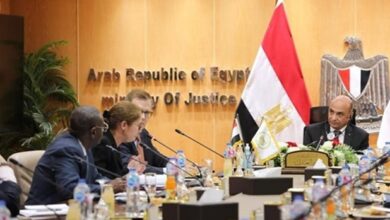ABU DHABI–Egypt plans to fund its 134 billion Egyptian pound budget deficit through a combination of local market issuance and with aid from Arab states, Finance Minister Samir Radwan said on Monday.
"Egypt can go at least a year without World Bank or IMF (support) but only with the help of Arab countries," Radwan told reporters in the United Arab Emirates' capital.
"We plan to cover 120 billion pounds from the local market, and 14 billion pounds of the deficit we are looking for from Arab countries," he said without giving further details.
Egypt had sealed a US$3 billion financial package from the International Monetary Fund on June 5 to shore up its finances after protests that ended Hosni Mubarak's 30-year rule scared away tourists and investors, two of its main sources of foreign exchange.
But after securing the package, Radwan said the country would not need to borrow after all from the IMF or the World Bank, which had also offered a large lending package, saying the shortfall could now be covered locally and from foreign aid.
Asked on Monday whether it would be difficult to raise the funds in the local treasury market at attractive rates, Radwan replied: "That is why we stopped at 120 billion."
The cost of insuring Egyptian debt against default stood at 315.7 basis points on Monday, according to Markit data, meaning it costs 315,700 pounds to protect 10 million pounds of debt. That price had hit 441 basis points in late January as the revolt against Mubarak was growing.
The government forecasts that its revised budget will cut the deficit for the fiscal year starting 1 July to 8.6 percent of annual economic output from a previously predicted 11 percent. But it has given few details of how it will achieve this.
Egypt, whose economy contracted in the first six months of 2011, approached the IMF and international donors in early May to help it plug a forecast US$11 billion balance of payments gap in 2011/12 following the political turmoil.
The World Bank had said it would offer US$4.5 billion over the next 24 months, including US$1 billion to help cover next year's budget shortfall. It now says it will review the plans after Egypt said it no longer wanted the IMF money.
Egypt's central bank sold fewer 91-day treasury bills than it offered at an auction on Sunday after yields rose from last week.




